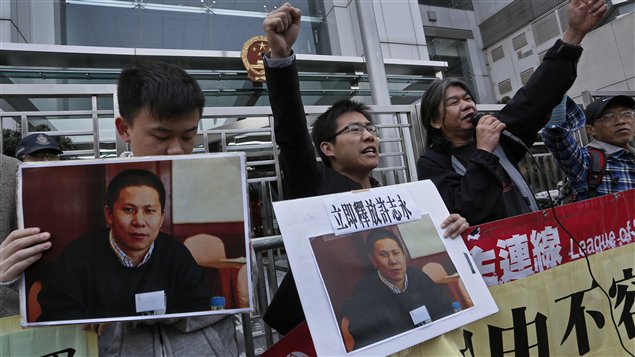Canada has used strong language and an uncommonly direct way to criticize China’s treatment of several activists who it names.
“So direct, so specific”
“It’s an unusual thing for the Canadian government to be so direct and so specific,” says Charles Burton, a professor and former advisor to the government of Canada on China policy. “And it’s also pretty much unprecedented that the statement comes from our ambassador—the man who will be working with the Chinese every day on all the issues involved in the relationship.”
The statement by Ambassador Guy Saint-Jacques “deplores” the recent sentencing of Beijing University Law Professor Xu Zhiyong to four years in prison. The text reads:

“Canada deplores”
“Xu Zhiyong is known for fighting official corruption and advocating a society in which the rule of law applies to and protects all Chinese citizens.
“Canada deplores the sentencing of Xu Zhiyong. We believe he is being punished for exercising his right to peaceful and non-violent freedom of expression.
“This latest conviction is part of a series of incidents involving peaceful Chinese citizens, including journalists, academics, lawyers and religious officials.
“Canada calls on the Government of China to end the harassment and unjust detention and trial of citizens like Xu Zhiyong, Ilham Tohti, Gao Zhisheng, Liu Xiaobo and Liu Xia.
“Chinese citizens like these who peacefully work to improve their country should be free from intimidation, harassment and prosecution.”
“Quiet diplomacy not working”
The statement comes after the U.S. ambassador made similar remarks and Burton says both Canada and the U.S. appear to have come to the conclusion that quiet diplomacy is not working to stem the suppression of dissidents and increasing corruption.
Canada may also be making this “bold statement” for domestic consumption, says Burton. He notes Opposition Liberal Party Leader Justin Trudeau has recently suggested that criticism of China’s human rights record could affect Canada’s ability to do business with that country. Burton thinks the ruling conservatives may be taking a tough stand with China in order to position themselves for an election expected in 2015.

Statement “likely to cool relations”
China has been dismissive of foreign governments’ comments on what it sees as internal affairs. Canadian government officials often bring up human rights concerns on their visits to China. For the ambassador to comment so publicly and forcefully is likely to cool relations with his counterparts in China’s department of foreign affairs, says Burton.
“Not just lip service”
“It really makes it clear that we’re not just paying lip service to human rights, but these views are expressing the genuine concerns of Canadian citizens …and (the statement) is clearly the stance of the government of Canada with regards to the allegations of human rights abuses in China.”







For reasons beyond our control, and for an undetermined period of time, our comment section is now closed. However, our social networks remain open to your contributions.